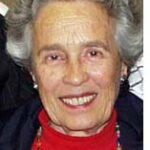By Eileen Wingard

LA JOLLA, California– Jonathan Biss, who had his debut recital during the 2000-2001 season at the 92nd Street Y in Manhattan, is the son of the celebrated Israeli violinist, Miriam Fried. His paternal grandmother was the famous cellist, Raya Garbousova, and his father, Paul Biss, is a well-known violist. It is no wonder that Jonathan plays as if music were in his DNA.
The youthful pianist has performed with every major orchestra in the United States, including the Chicago, Boston, New York, Los Angeles and San Francisco Symphony Orchestras. Abroad, he has been the featured soloist with orchestras in London, Berlin, Leipzig, and Amsterdam.
Since 2010, the 32-year-old virtuoso has held the prestigious Neubauer Family Foundation Chair in Piano at the Curtis Institute of Music in Philadelphia, where he was a student of the great Jewish-American pianist, Leon Fleischer.
Biss is intimately involved with the music of Beethoven, and in his Aug. 6 La Jolla Music Society appearance, he chose to perform an all-Beethoven program. He has already recorded eight sonatas in a multiple-recording project, planned over a nine-year period, which will include all of Beethoven’s 32 piano sonatas. The gifted musician will also be teaching a class over the internet on the Beethoven sonatas, part of the Curtis Institute’s distance learning program.
Biss generates great excitement in his playing, with strong dynamic contrasts, as Beethoven indicates, and exaggerated tempi. The first half of the program consisted of two sonatas, the G Major, opus 31, No. 1 and the C Major, opus 53, known as the “Waldstein,” because it was commissioned by the composer’s patron, Count Ferdinand von Waldstein.
Biss’ beautiful phrasing and deep emotional involvement were especially evident in the slow movements. The same graceful phrasing and dynamic contrasts were manifested in the rondo movements of both sonatas. Biss strongly conveyed Beethoven’s teasing endings, where the listener is deceived into thinking the movement is finished, only to realize that Beethoven still had more to say.
In his enthusiasm to propel Beethoven to new heights, Biss tended to push the tempi of the first movements, and often, in his breakneck speed, he sacrificed clarity for velocity. Especially in the G Major Sonata, the playful humor could not always shine through because he seemed to interpret the Allegro Vivace tempo marking to mean, Vivace.
After intermission, Biss assumed the role of chamber musician in the dramatic “Ghost” Trio. He was joined by violinist, Joseph Swensen and cellist, Joshua Roman. Swensen’s bright sound and assertive playing was a good match for Biss, but Roman did not project the presence to equal his partners, although he played very musically. Biss was the consummate collaborator, remaining in the background for those passages where the strings had the melody and coming forth with soloistic fervor where the piano took the lead. Even ornamental runs, in his hands, sounded like strings of iridescent pearls.
The SummerFest will continue through August 23, the concluding evening with James Conlon conducting the SummerFest Chamber Orchestra in works by Mozart and Britten. Next Tuesday, August 13, Nicholas McGegan will conduct the Arcadian Academy in an evening of Italian Baroque music. On August 14 and 21, the concerts are entitled Bach and Beyond II and III; on August 16, Musical Crossroads will feature three world premiers and the Bartok Sonata for Two Pianos and Percussion; on August 18 at 3:00 p.m. the concert is called, Opera Stars: Boheme to the Ring, with chamber works by leading opera composers; and on August 20, there will be An Evening with Daniil Trifonov, recent winner of the Rubinstein Competition in Tel Aviv, the Tchaikovsky Competition in Moscow, and the Chopin Competition in Warsaw. Following the format of the Biss concert, Trifonov will perform solo selections on the first half of the program and will be joined by a string quartet for Schumann’s Piano Quintet on the second half.
The SummerFest serves up a musical feast with a vast variety of offerings. It is now recognized as one of the leading music festivals in the country.
*
Wingard is a freelance writer and retired violinist with the San Diego Symphony. She may be contacted at eileen.wingard@sdjewishworld.com